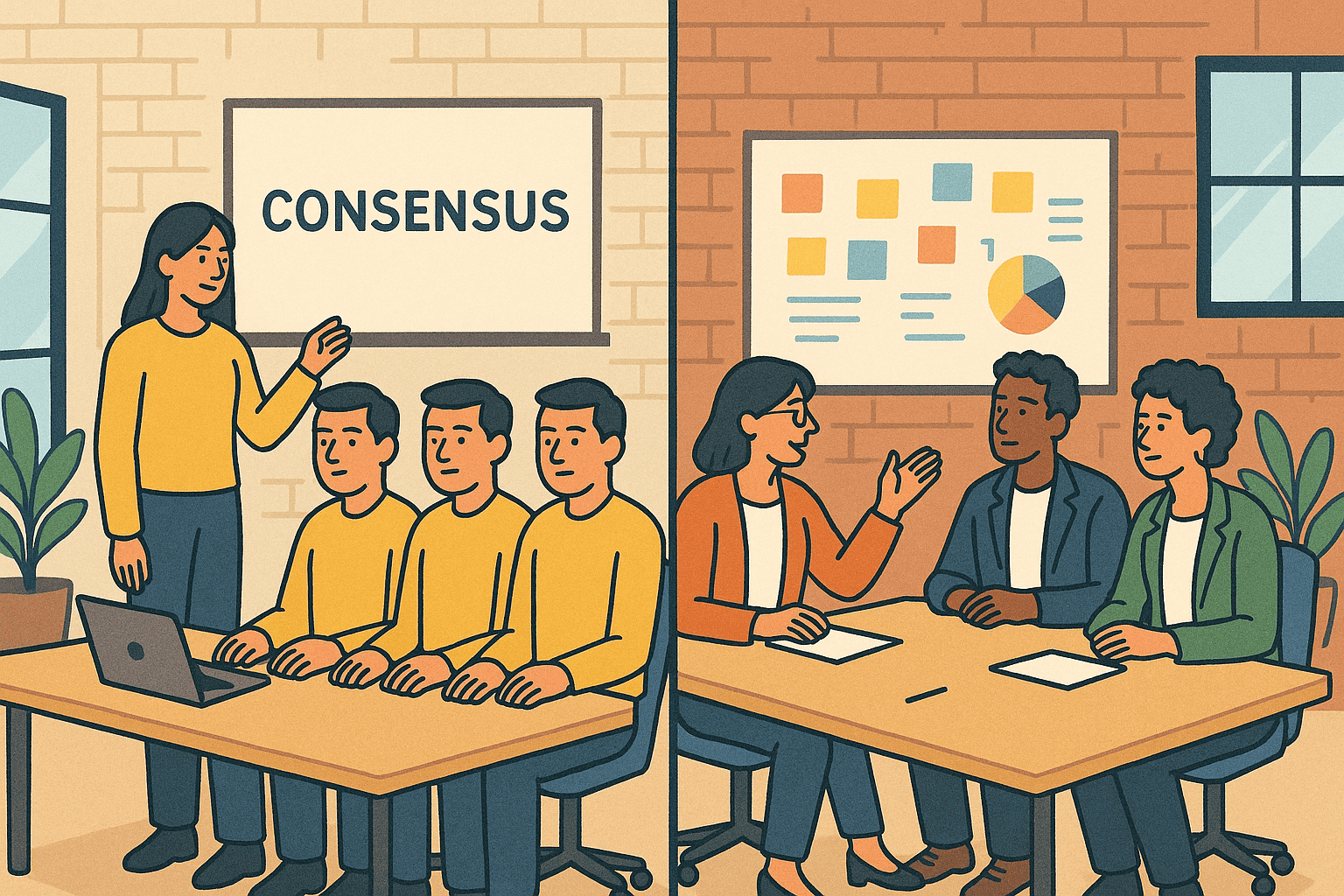


Groupthink vs. Group Thinking
One question we constantly ask ourselves at NextView is whether we actually make better decisions because we have Partners. This isn’t always as straightforward as you would think.
Like most early stage firms, we have a decision-making system that allows for disagreement. You don’t need to have consensus to make an investment at NextView. In fact, a Partner at the firm can go out on a limb and lead an investment even if everyone else advises against it.
Even though this is true, we have Partners for a reason. We respect one another’s point of view and certainly feel significant pressure if we are advocating for something that another Partner has strong reservations about for good reasons.
As a result, groupthink can still happen even with a system like ours. It’s easy to seek a path of least resistance and still bring forward opportunities that most people agree with rather than needing to argue about a highly contentious opportunity.
As the non-lead, it’s also possible to be lazy and just bias towards a “no” vote most of the time to test your Partners’ conviction. This doesn’t further the collective thinking, and weirdly makes it more likely that only consensus ideas bubble to the top.
Over the years, I’ve come to realize that the power of a team is more in the prosecution of an opportunity than it is about the decisions themselves. It’s how a team surrounds a problem with different information and perspectives and protects against different forms of bias.
In other words, it’s NOT about group decision-making. That’s what leads to groupthink. It IS about thinking as a group. That’s what leads to better decisions.
Actually, any decision-making system can work. But what matters is everything that happens before the decision.
For example: is the culture of the firm centered around truth seeking? Are Partners incentivized to drive the best outcomes for the firm vs. putting points on the board themselves? This is more about the economic structure of the firm than it is about decision-making rules.
Another example: is there enough social awareness and trust to be able to call one another out for past mistakes or biases to make the lead Partner face hard truths? This is more about culture and cohesion than any sort of voting scheme.
Third example: are Partners willing to do the extra work to get to answers quickly together? In a fast moving opportunity, can you get 4 days of diligence done in 1 day because you have 4 people working on it? This allows for speed AND diligence, not just sloppy speed.
This is why groupthink continues to persist in most of venture, even though we all claim to be contrarians. We’ve been fooled into thinking that avoiding groupthink is about how we make a decision, when it’s actually about the foundation and culture upon which the group thinks.





